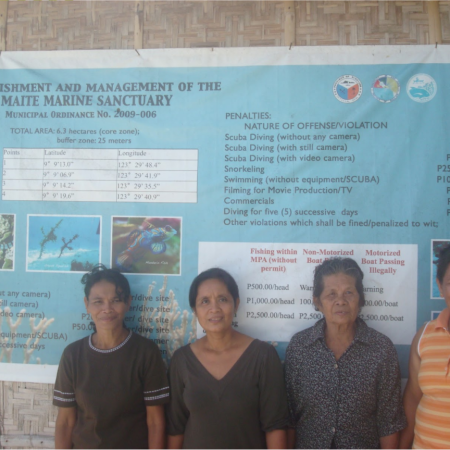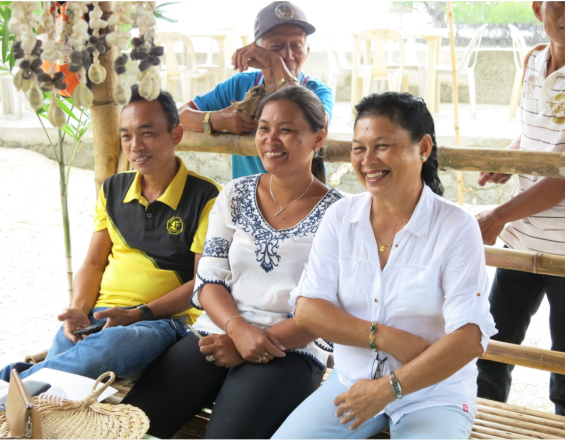In co-governance of MPAs, defining who participates from the community will either limit or enable long-term success. Women and men have varying roles, priorities, needs and knowledge surrounding coastal resource management and will, therefore, contribute different ideas to and gain different benefits from MPA management. People of all genders, regardless of whether they derive direct income from fishing or not, should be equally included in capacity building and management opportunities for MPAs to fully capture community needs and priorities and foster widespread community support.
Enabling factors
The existence of a community that intends to monitor and enforce fishing restrictions of an MPA is integral to success. Women and men in their varying roles can help to spread information about and enforce policies and will help reach a broader community. Additionally, support from donor organizations that value the inclusion of women and understand the local gender dynamics can help foster a shift of gender stereotypes and ensure women and men are included equally.
Lesson learned
Some communities in the Philippines have had MPAs since the 1970's, and many of these were established with only male fishermen. This means that there are long-held stereotypes and local traditions that keep women from participating. In the case of Caticugan, these stereotypes created major barriers to women’s formal participation in MPA management, which limited their income and empowerment opportunities. Conversely, women in Maite and Bino-ongan were present and oftentimes led initiatives and management of MPAs, leading to new income-generating opportunities and effective preservation of ecosystem resources. As MPAs continue to be supported by global NGOs and paid for with overseas aid, evaluation frameworks used must integrate gender equality in order to fully assess the current gaps in women's participation. If a funding plan and evaluation framework does not include gender equality, then women whose lives will be impacted are less likely to support management.


